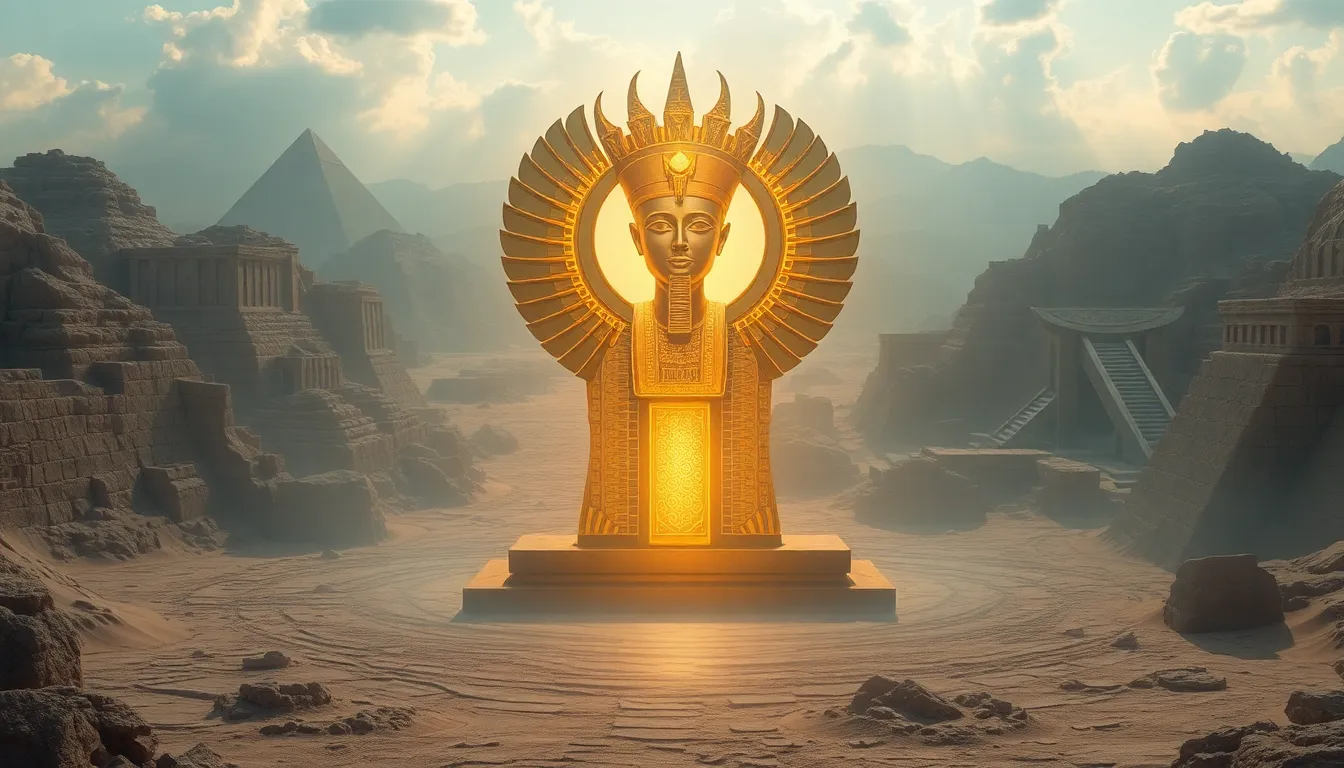The Influence of Egyptian Mythology on Global Spirituality
1. Introduction
Egyptian mythology is a rich tapestry of beliefs, stories, and rituals that originated in ancient Egypt, one of the world’s oldest civilizations. It encompasses a vast array of gods, goddesses, and mythological tales that explain the creation of the world, the nature of humanity, and the afterlife. The historical significance of Egyptian mythology is profound, influencing not only the civilization itself but also leaving an indelible mark on the spiritual practices of cultures worldwide.
This article aims to explore the impact of Egyptian mythology on global spiritual practices, examining its key deities, concepts, and the ways in which it has permeated various religions and cultural expressions throughout history.
2. Key Deities and Concepts in Egyptian Mythology
At the heart of Egyptian mythology are its major gods and goddesses, each representing various aspects of life, nature, and the cosmos. Some of the most significant deities include:
- Ra: The sun god, symbolizing light, warmth, and growth, often depicted as a falcon-headed man with a sun disk.
- Isis: The goddess of magic and motherhood, known for her role as a protector and healer, often associated with the cycles of life and death.
- Osiris: The god of the afterlife, resurrection, and fertility, who represents the cycle of life and death through his own myth of murder and rebirth.
Important themes in Egyptian mythology include:
- Duality: The concept of opposites, such as life and death, chaos and order, often embodied in the relationships between gods and their counterparts.
- Resurrection: A central theme, particularly evident in the myths surrounding Osiris, emphasizing the belief in life after death.
- The Afterlife: The journey to the afterlife was crucial, with detailed rituals and beliefs about judgment, including the weighing of the heart against the feather of Ma’at.
3. The Role of Egyptian Mythology in Ancient Egyptian Society
Egyptian mythology was not merely a system of beliefs; it was integral to the daily lives of the ancient Egyptians. Religious practices and rituals centered around these myths were common, with temples dedicated to various deities and festivals celebrating their stories.
Additionally, mythology was deeply intertwined with governance. Pharaohs were considered divine figures, often associated with gods like Horus or Ra, reinforcing their authority as earthly representatives of the divine. This connection influenced:
- Art: Many artworks depicted gods and mythological scenes, serving both decorative and religious purposes.
- Architecture: Monumental structures like temples and pyramids were built to honor the gods and facilitate communication with the divine.
4. The Spread of Egyptian Influence Through Trade and Conquest
Throughout history, Egypt’s strategic location facilitated trade and cultural exchange with neighboring civilizations. As Egyptians interacted with cultures such as the Greeks and Romans, their mythology permeated these societies.
Historical contexts reveal that:
- Greek writers, such as Herodotus, documented Egyptian beliefs, leading to a syncretism of Greek and Egyptian deities.
- Roman emperors adopted Egyptian symbols and deities to legitimize their rule and connect with the mystique of Egyptian culture.
5. Egyptian Mythology’s Impact on Later Religious Traditions
The themes prevalent in Egyptian mythology resonate with many later religious traditions. For instance, the concepts of resurrection and divine judgment appear in various forms in major world religions, including:
- Christianity: The resurrection of Jesus Christ echoes the story of Osiris, with themes of death and rebirth central to both narratives.
- Islam: The ideas of accountability and the afterlife reflect the Egyptian emphasis on judgment, particularly in the weighing of the heart.
- Hinduism: The cyclical nature of life and death in Hindu beliefs mirrors the Egyptian understanding of resurrection and the afterlife.
6. Modern Interpretations and Revivals of Egyptian Spirituality
In contemporary times, there has been a resurgence of interest in Egyptian mythology, often seen within the context of modern spirituality and neopaganism. Many individuals and groups draw inspiration from ancient practices, seeking to revive and reinterpret these beliefs for modern life.
This revival includes:
- The incorporation of Egyptian deities into modern spiritual practices.
- The creation of rituals inspired by ancient Egyptian customs, often focusing on themes of healing and empowerment.
7. Cultural Representations of Egyptian Mythology in Art and Literature
The influence of Egyptian mythology extends beyond religion into modern art, literature, and popular culture. Artists and writers have drawn upon Egyptian themes to explore complex ideas about life, death, and the divine.
Notable examples include:
- Art: Works by artists like Salvador Dalí and modern filmmakers often reference Egyptian mythology, utilizing its rich symbolism.
- Literature: Novels such as “The Egyptian” by Mika Waltari and various fantasy works incorporate Egyptian themes and characters, reviving interest in ancient stories.
8. Conclusion
The enduring legacy of Egyptian mythology is evident in its profound influence on global spiritual beliefs and practices. From its key deities and vibrant stories to its integration into various religious traditions, Egyptian mythology continues to shape our understanding of spirituality today.
As we reflect on the importance of ancient mythologies, we recognize their relevance in contemporary contexts, reminding us of the shared human experience that transcends time and culture. Understanding these mythologies enriches our appreciation of the diverse spiritual landscapes that exist in our world.




